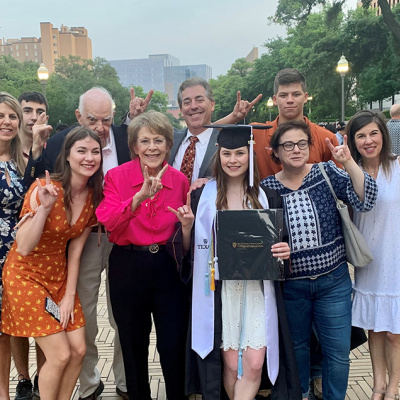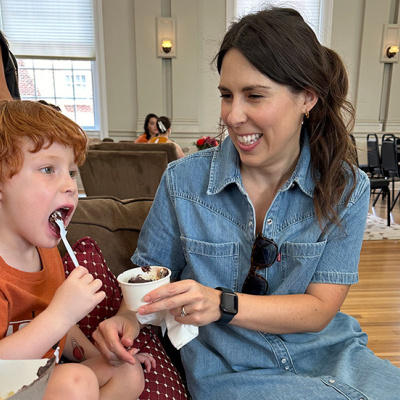UT Professor Oscar Cásares’ New Book Looks at Life on the South Texas Border

When people ask UT English professor Oscar Cásares where he’s from, he’s not always sure what to say.
Aside from a brief stint in the Midwest for grad school, Cásares, BS ’87, has lived in Austin for more than 30 years, since he first started as an undergrad at UT. But he was born and raised in a Texas that often feels worlds away from the capital city: a place on the most southern tip of Texas bordering Mexico, in Brownsville. “So what does that mean? Am I from here ... or from there?” he says. “When it comes down to it, I always identify as being from the border. I live here. I work here. But I write about there.”
Since having left the Rio Grande Valley, the nearly 5,000-square-mile strip of border land made up of Texas cities like McAllen, Edinburg, Brownsville, and Harlingen, Cásares has spent much of his career writing about it. He’s been published in Texas Monthly, the Washington Post, and The New York Times, and has written two books, Brownsville: Stories and Amigoland.
His latest novel Where We Come From, which will be released on May 21, tells the story of a 12-year-old boy named Orly who moves from Houston to Brownsville to live with his godmother, Nina. But Nina has a secret: she is hiding a young immigrant boy from the authorities and human traffickers.
Cásares spoke with the Alcalde about his new book and life on the U.S.-Mexico border.

Why did you decide to write this story?
I started writing it in 2014. I was interested in telling a story about the Valley and what’s going on there. The border has always been an issue. But I had no idea then that it was going to explode and be such a focal point.
How much of the book is based on real people and events?
I don’t make up nearly as much as people think I make up. The characters end up being a composite of different people I’ve known. The dialogue is based on what I heard growing up. And I’ve heard stories about human trafficking. I’ve got a cousin who had a property he was renting out. One day the authorities called him up and said, “Hey, your property is under surveillance, there is some kind of activity going on.” It turned out it was being used as a drop-house for drugs or immigrants.
I also grew up in the Valley—it’s crazy how close to you these things can be.
Yeah, up here [in Austin] we hear about the really tragic stories of the trailers and those sorts of things. But it goes on way beyond those dramatic stories. In some cases it’s just happening in middle-class homes, country clubs. Any place you can imagine, they can make it work.
What kind of research did you do?
I talked to people who had crossed over. I also happened to meet this gentleman who was a former INS (Immigration and Naturalization Service) secret agent. His job was to go into Mexico, pose as an immigrant, get himself smuggled into the country, get north, and then bring the operation down. He had to document everything—how money is exchanged, how long he was held. He filled out the story for me. I consulted with an immigration attorney to give me a sense of how it works on his side. I came to understand that I really knew nothing. You have to walk into it that way.
How do you capture somewhere as complicated as the Valley?
I think had I stayed in the Valley, I wouldn’t have been able to write about it with the same clarity and distance. It’s important for me to try to capture some of the language—the way you start a sentence in English then start speaking Spanish midway—and the ways that families deal with one another. On the other hand, I never want people to lose sight that these are American stories. You can live in two worlds at once and be fluid in that way.
With all the rhetoric surrounding the border, do you feel a responsibility to write about home?
Not in the sense of an obligation. The responsibility is to get it as right as I can. I want readers to see what these people are struggling with—how they fall in love, yearn, connect, and carry grudges. And then I want people to realize they’re Mexican-American. I want you to see them as just people and not immediately identify them as an ethnic group.
What do you hope readers take away from Where We Come From?
I’d like them to see the human side of this situation and see that people like the characters in the book are vulnerable and scared and in need. I didn’t write this with a political agenda. I don’t think I can change people’s minds. But can I get them to see it a little differently? Maybe.
This interview has been edited and condensed.
Photographs courtesy of Oscar Cásares






